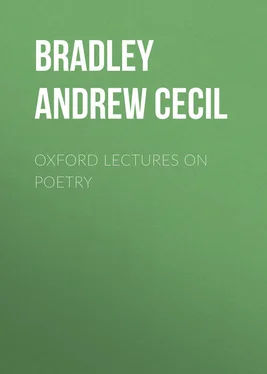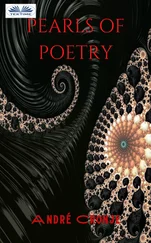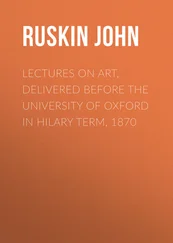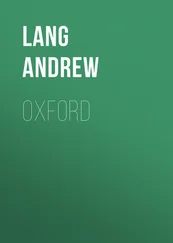Andrew Bradley - Oxford Lectures on Poetry
Здесь есть возможность читать онлайн «Andrew Bradley - Oxford Lectures on Poetry» — ознакомительный отрывок электронной книги совершенно бесплатно, а после прочтения отрывка купить полную версию. В некоторых случаях можно слушать аудио, скачать через торрент в формате fb2 и присутствует краткое содержание. ISBN: , Жанр: foreign_antique, foreign_prose, foreign_poetry, на английском языке. Описание произведения, (предисловие) а так же отзывы посетителей доступны на портале библиотеки ЛибКат.
- Название:Oxford Lectures on Poetry
- Автор:
- Жанр:
- Год:неизвестен
- ISBN:http://www.gutenberg.org/ebooks/36773
- Рейтинг книги:4 / 5. Голосов: 1
-
Избранное:Добавить в избранное
- Отзывы:
-
Ваша оценка:
- 80
- 1
- 2
- 3
- 4
- 5
Oxford Lectures on Poetry: краткое содержание, описание и аннотация
Предлагаем к чтению аннотацию, описание, краткое содержание или предисловие (зависит от того, что написал сам автор книги «Oxford Lectures on Poetry»). Если вы не нашли необходимую информацию о книге — напишите в комментариях, мы постараемся отыскать её.
Oxford Lectures on Poetry — читать онлайн ознакомительный отрывок
Ниже представлен текст книги, разбитый по страницам. Система сохранения места последней прочитанной страницы, позволяет с удобством читать онлайн бесплатно книгу «Oxford Lectures on Poetry», без необходимости каждый раз заново искать на чём Вы остановились. Поставьте закладку, и сможете в любой момент перейти на страницу, на которой закончили чтение.
Интервал:
Закладка:
Let us begin by placing side by side five terms which represent five of the many modes of beauty – sublime, grand, ‘beautiful,’ graceful, pretty. ‘Beautiful’ is here placed in the middle. Before it come two terms, sublime and grand; and beyond it lie two others, graceful and pretty. Now is it not the case that the first two, though not identical, still seem to be allied in some respect; that the last two also seem to be allied in some respect; that in this respect, whatever it may be, these two pairs seem to stand apart from one another, and even to stand in contrast; that ‘beauty,’ in this respect, seems to hold a neutral position, though perhaps inclining rather to grace than to grandeur; and that the extreme terms, sublime and pretty, seem in this respect to be the most widely removed; so that this series of five constitutes, in a sense, a descending series, – descending not necessarily in value, but in some particular respect not yet assigned? If, for example, in the lady’s answer, ‘Yes, it is the prettiest thing I ever saw,’ you substitute for ‘prettiest’ first ‘most graceful,’ and then ‘most beautiful,’ and then ‘grandest,’ you will find that your astonishment at her diminishes at each step, and that at the last, when she identifies sublimity and grandeur, she is guilty no longer of an absurdity, but only of a slight anti-climax. If, I may add, she had said ‘majestic,’ the anti-climax would have been slighter still, and, in fact, in one version of the story Coleridge says that ‘majestic’ was the word he himself chose.
What then is the ‘respect’ in question here, – the something or other in regard to which sublimity and grandeur seemed to be allied with one another, and to differ decidedly from grace and prettiness? It appears to be greatness. Thousands of things are ‘beautiful,’ graceful, or pretty, and yet make no impression of greatness, nay, this impression in many cases appears to collide with, and even to destroy, that of grace or prettiness, so that if a pretty thing produced it you would cease to call it pretty. But whatever strikes us as sublime produces an impression of greatness, and more – of exceeding or even overwhelming greatness. And this greatness, further, is apparently no mere accompaniment of sublimity, but essential to it: remove the greatness in imagination, and the sublimity vanishes. Grandeur, too, seems always to possess greatness, though not in this superlative degree; while ‘beauty’ neither invariably possesses it nor tends, like prettiness and grace, to exclude it. I will try, not to defend these statements by argument, but to develop their meaning by help of illustrations, dismissing from view the minor differences between these modes of beauty, and, for the most part, leaving grandeur out of account.
We need not ask here what is the exact meaning of that ‘greatness’ of which I have spoken: but we must observe at once that the greatness in question is of more than one kind. Let us understand by the term, to begin with, greatness of extent, – of size, number, or duration; and let us ask whether sublime things are, in this sense, exceedingly great. Some certainly are. The vault of heaven, one expanse of blue, or dark and studded with countless and prodigiously distant stars; the sea that stretches to the horizon and beyond it, a surface smooth as glass or breaking into innumerable waves; time, to which we can imagine no beginning and no end, – these furnish favourite examples of sublimity; and to call them great seems almost mockery, for they are images of immeasurable magnitude. When we turn from them to living beings, of course our standard of greatness changes; 16 16 I do not mean to imply that in aesthetic apprehension itself we always, or generally, make conscious use of a standard or, indeed, think of greatness. But here we are reflecting on this apprehension.
but, using the standard appropriate to the sphere, we find again that the sublime things have, for the most part, great magnitude. A graceful tree need not be a large one; a pretty tree is almost always small; but a sublime tree is almost always large. If you were asked to mention sublime animals, you would perhaps suggest, among birds, the eagle; among fishes, if any, the whale; among beasts, the lion or the tiger, the python or the elephant. But you would find it hard to name a sublime insect; and indeed it is not easy, perhaps not possible, to feel sublimity in any animal smaller than oneself, unless one goes beyond the special kind of greatness at present under review. Consider again such facts as these: that a human being of average, or even of less than average, stature and build may be graceful and even ‘beautiful,’ but can hardly, in respect of stature and build, be grand or sublime; that we most commonly think of flowers as little things, and also most commonly think of them as ‘beautiful,’ graceful, pretty, but rarely as grand, and still more rarely as sublime, and that in these latter cases we do not think of them as small; that a mighty river may well be sublime, but hardly a stream; a towering or far-stretching mountain, but hardly a low hill; a vast bridge, but hardly one of moderate span; a great cathedral, but hardly a village church; that a model of a sublime building is not sublime, unless in imagination you expand it to the dimensions of its original; that a plain, though flat, may be sublime if its extent is immense; that while we constantly say ‘a pretty little thing,’ or even ‘a beautiful little thing,’ nobody ever says ‘a sublime little thing.’ Examples like these seem to show clearly – not that bigness is sublimity, for bigness need have no beauty, while sublimity is a mode of beauty – but that this particular mode of beauty is frequently connected with, and dependent on, exceeding greatness of extent.
Let us now take a further step. Can there be sublimity when such greatness is absent? And, if there can, is greatness of some other sort always present in such cases, and essential to the sublime effect? The answer to the first of these questions is beyond doubt. Children have no great extension, and what Wordsworth calls ‘a six-years’ darling of a pigmy size’ is (if a darling) generally called pretty but not sublime; for it is ‘of a pigmy size.’ Yet it certainly may be sublime, and it is so to the poet who addresses it thus:
Thou whose exterior semblance doth belie
Thy soul’s immensity…
Mighty prophet! Seer blest!
On whom those truths do rest
Which we are toiling all our lives to find.
A baby is still smaller, but a baby too may be sublime. The starry sky is not more sublime than the babe on the arm of the Madonna di San Sisto. A sparrow is more diminutive still; but that it is possible for a sparrow to be sublime is not difficult to show. This is a translation of a prose poem by Tourgénieff:
I was on my way home from hunting, and was walking up the garden avenue. My dog was running on in front of me.
Suddenly he slackened his pace, and began to steal forward as though he scented game ahead.
I looked along the avenue; and I saw on the ground a young sparrow, its beak edged with yellow, and its head covered with soft down. It had fallen from the nest (a strong wind was blowing, and shaking the birches of the avenue); and there it sat and never stirred, except to stretch out its little half-grown wings in a helpless flutter.
My dog was slowly approaching it, when suddenly, darting from the tree overhead, an old black-throated sparrow dropt like a stone right before his nose, and, all rumpled and flustered, with a plaintive desperate cry flung itself, once, twice, at his open jaws with their great teeth.
It would save its young one; it screened it with its own body; the tiny frame quivered with terror; the little cries grew wild and hoarse; it sank and died. It had sacrificed itself.
Читать дальшеИнтервал:
Закладка:
Похожие книги на «Oxford Lectures on Poetry»
Представляем Вашему вниманию похожие книги на «Oxford Lectures on Poetry» списком для выбора. Мы отобрали схожую по названию и смыслу литературу в надежде предоставить читателям больше вариантов отыскать новые, интересные, ещё непрочитанные произведения.
Обсуждение, отзывы о книге «Oxford Lectures on Poetry» и просто собственные мнения читателей. Оставьте ваши комментарии, напишите, что Вы думаете о произведении, его смысле или главных героях. Укажите что конкретно понравилось, а что нет, и почему Вы так считаете.












